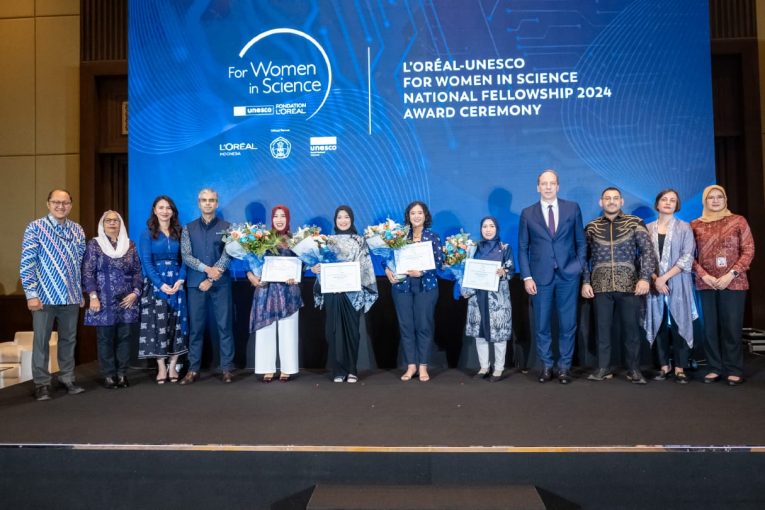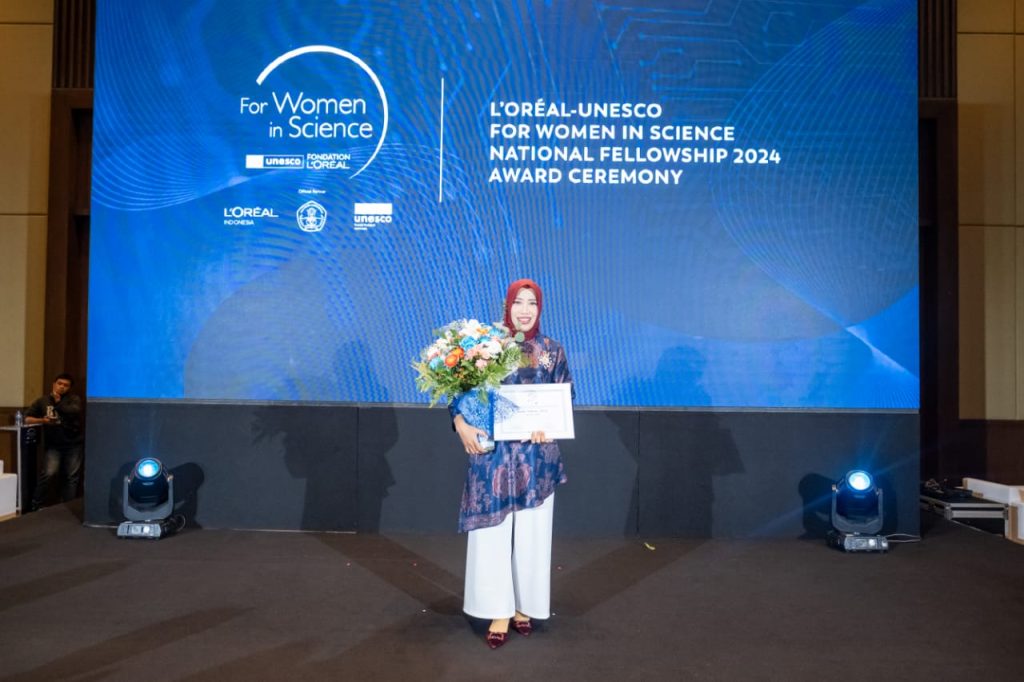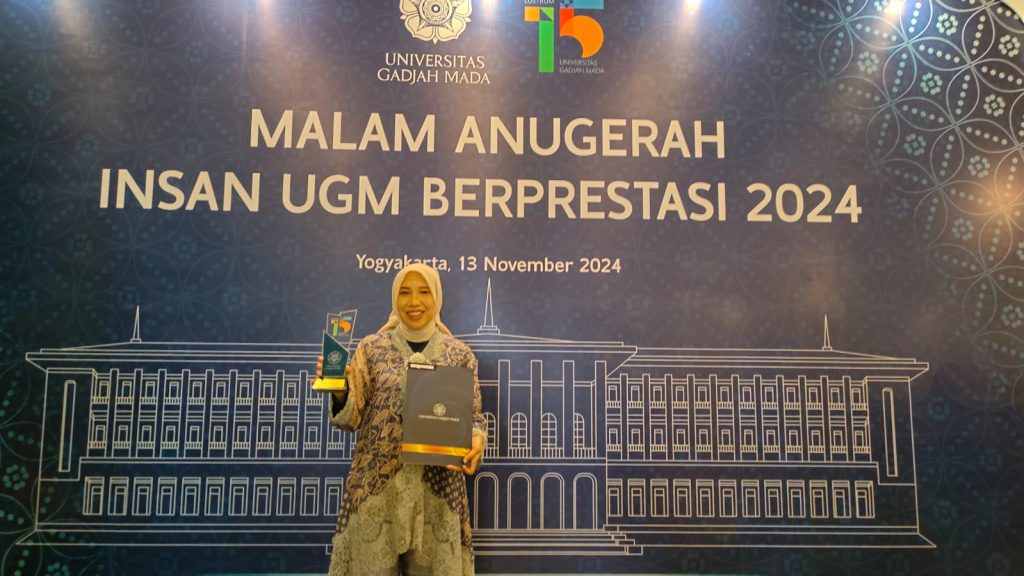
Rachma Wikandari, S.T.P., M.Biotech., PhD, a lecturer from the Department of Food and Agricultural Product Technology at UGM, fondly known as Wikan, has achieved a prestigious national award for her innovative research in food security and sustainability.
 On October 11, 2024, Wikan was granted the National L’Oréal – UNESCO For Women in Science (FWIS) 2024 Award, a national accolade recognizing female researchers contributing to sustainable development. The recipients of this award demonstrate not only their commitment to groundbreaking research but also the capacity of science to address national and global challenges. Wikan was honoured for her innovation in developing tempeh-based mycoprotein, a high-quality alternative protein source with excellent nutritional value, rich in fiber, low in fat, and containing unsaturated fatty acids.
On October 11, 2024, Wikan was granted the National L’Oréal – UNESCO For Women in Science (FWIS) 2024 Award, a national accolade recognizing female researchers contributing to sustainable development. The recipients of this award demonstrate not only their commitment to groundbreaking research but also the capacity of science to address national and global challenges. Wikan was honoured for her innovation in developing tempeh-based mycoprotein, a high-quality alternative protein source with excellent nutritional value, rich in fiber, low in fat, and containing unsaturated fatty acids.
This innovation also highlights her environmental consciousness. Wikan successfully utilized soybean cooking water waste from tempeh factories as a growth medium for tempeh fungi, reducing industrial waste and contributing to food security. Her research aligns with Sustainable Development Goal (SDG) 2, which aims to end hunger.
“The FWIS program provides researchers much-needed recognition, motivation, and networking opportunities. I hope this program continues and fosters collaboration among alumni to generate positive impacts for local and global communities,” said Wikan.

Wikan’s achievements do not stop there. On Wednesday, October 13, Rachma Wikandari, PhD, was named the Top Inspirational Lecturer Winner at the UGM Outstanding Individual Awards. This accomplishment underscores her dedication as an inspiring and impactful educator. Her achievements in this recognition highlight the integration of the three pillars of higher education (Tridharma):
Education and Research: Conducted pedagogical research to test the effectiveness of animated video as a teaching medium and the flipped learning method. Her findings, published in the Journal of Chemical Education, a reputable international journal (Q2) established in 1924, marked her as the first UGM author to publish in this journal. The study demonstrated that combining animated videos with flipped learning methods enhances students’ understanding at the C3 level—application of knowledge.
Education and Community Service: Produced an educational animation video titled “Electron Transport: The Energy Formation Process in Our Body,” accessible on YouTube with over 9,300 views, benefiting the wider community.
Research and Community Engagement: Produced mycoprotein from tempeh industry by-products as an alternative protein source in collaboration with a tempeh SME. This research, published in a reputable international journal, earned recognition from the International Union of Food Science and Technology. Additionally, Wikan contributed to developing a biogas digester at Gemah Ripah Gamping fruit market, determining the composition of fruits used in the digester. The biogas digester has been operational since 2011. Through these efforts, Wikan supports providing quality alternative protein sources for food security and sustainable energy development, positively impacting society.
In her research, Wikan collaborates with various parties, including interdisciplinary academics at UGM, business and industry partners, and international universities.
Wikan achievements are expected to inspire the younger generation to apply science to solve national problems. Her accomplishments set a benchmark for other academics to excel and advance the nation through integrating the Tridharma and multidisciplinary collaboration, both domestically and internationally.
Written by: Firstnandita Keisha
